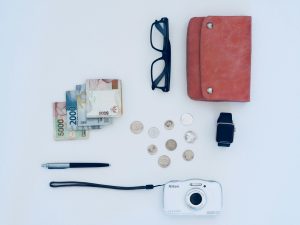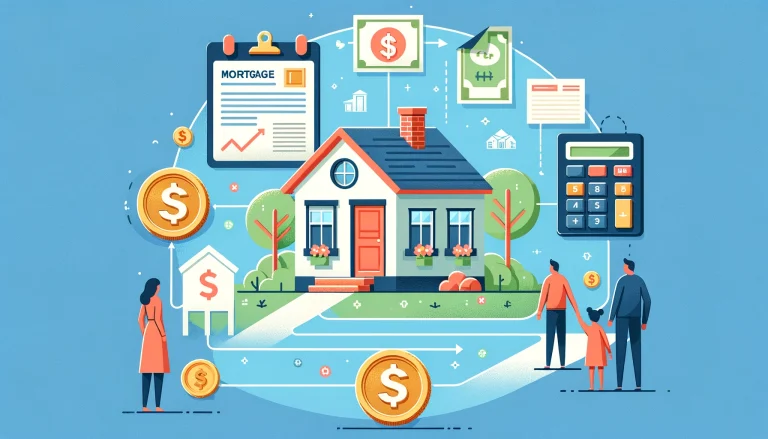During these tumultuous times, it’s important to reduce spending with these smart strategies. The year 2020 has become especially unpredictable and difficult as the COVID-19 ravages the world. It has caused great uncertainty for all aspects of human life, particularly the world economy.
Limit your expenditures and save for an emergency fund, so you can weather the days ahead.
The Economy in 2020
Nations have imposed strict lockdowns in order to protect their citizens from the novel coronavirus, abruptly closing economies as a result. Governments closed down businesses and asked people to avoid going out unless absolutely necessary.
This has left many unable to earn income and with no employment opportunities. Economic activity ground to an abrupt screeching halt and people are left reeling from the whiplash.

The lockdowns severely limited overseas travel and trade, dealing with another critical blow to economies. Foreigners could be asymptomatic carriers of the coronavirus, so countries also kept them at bay.
However, this also cripples their various revenue streams like tourism and air travel. Their supply for various imported goods may also dwindle, skyrocketing the prices of numerous products.
These colossal and sudden responses have caused economic downturns never before seen worldwide. In turn, the US economy shrank by 30% during the second quarter of 2020, worse than the Great Depression. We will need a vaccine in order to start recovering, but we aren’t certain when it will arrive. These inoculations typically take years to develop, so everyone must adapt until then.
Reduce Spending in Hard Times
You may have been laid off or furloughed from work because of the lockdowns. If not, you may be lucky to still have an income stream, despite being a limited one. Nevertheless, we should all anticipate everything to cost significantly more in the future.
We must learn how to reduce spending, so we have the extra money in our savings accounts.
Despite these unpredictable times, people have always reacted in similar ways in the past. For instance, they tightened their budget due to the severe recession of the Great Depression. Those days also caused prices to balloon, so people had to limit their spending. They needed to save more money, so they could maintain their basic needs.
What are Some Possible Ways to Reduce Spending?
You may spend less by performing the usual budgeting techniques on a stricter basis. It includes the typical budget plan, but you should implement it even more stringently.
You should also plan and eat your dinners at home instead of having them delivered. Stay away from online shopping, and keep your credit card info away from retail websites.
Budget Planning
Due to these crises, keeping a budget plan has never been more important. You may find it harder to earn money and pay for everyday necessities in the coming days.
If you don’t tighten your wallet, you might not be able to maintain your basic needs. We all hope that circumstances improve, but we must adapt to our current circumstances.

Case in point, the 50-30-20 budget is a recommended way to reduce spending even during the coronavirus pandemic. It’s a trusted budget plan format that allocates 50% of someone’s income for essentials.
It reserves 30% for impulse purchases or other discretionary expenditures. The remaining 20% is for debt payment and savings, but may be added to the allocations for essentials if needed.
Start this way on how to reduce spending by listing your monthly expenses on a budget worksheet. Then, determine your usable income by deducting respective taxes from your monthly salary. This is the amount of money that must cover the opposing expenditure list.
Tally your monthly expenditures and see if you need further adjustments.
Check if your spending leaves barely any for savings and debts or if it exceeds your monthly funds. If it does, remove all unnecessary or redundant expenses, so you can divert more into your savings fund.
For example, cancel that gym membership you may not be using anymore. You may be paying for several online streaming services, but you’re only watching one.
It should be noted that more people now reserve the 30% fund for savings. After all, they can’t buy what they want because most businesses are closed.
More importantly, many are realizing the hardship ahead, so they choose to bolster their savings with that 30%. It’s the best way for all of us to survive such difficulty and uncertainty.
Track your Spending
Of course, you should monitor your budget plan to confirm its effectiveness. Jot down your progress after a month to see how much you’re now spending and saving. Lack of money for emergencies or you may require additional wiggle room for discretionary spending.
You may cut down more expenses then check in the following month if further adjustments are necessary.
You can ditch pen and paper for more convenient budgeting technologies provided by online websites. There are now numerous internet pages that contain free budget calculators. Just fill in the required details, and they will recommend a comprehensive expenditure plan.
They usually come from financial advisor webpages, so you may find helpful money management tips too.
For an even more expedient way to monitor your budget, get smartphone apps. They are usually free to install and use, but they can perform tasks similar to their browser counterparts. Even better, they can function without an internet connection and they come in a compact and portable device.
Your bank may also have their own cell phone applications that can help you stay within your budget. The apps allow you to set alarms when you’ve spent a certain amount from your bank account. Some even take the extra step of allowing users to limit their withdrawal amounts.
Find them on smartphone app stores and check your bank for more information.
Eat at Home
If you always wanted to learn how to cook, you should start now to save money. When you order cooked meals for delivery, you also pay extra for the respective services.
That money goes to the kitchen and delivery staff that made your premade meal possible. In contrast, buying ingredients and cooking them yourself is truly more affordable.

There is a wide range of free recipes for nearly every meal on Earth right at your fingertips. Just type in any dish you like and you’ll find numerous websites that can teach how to cook it.
You’ll also find a vast amount of videos that illustrate how to properly prepare meals. There are even tons of smartphone apps that detail recipes from all cuisines.
Aside from paying less, eating at home may also help you reduce spending on your health.
First, cooking meals yourself are usually healthier, since you’ll use real products rather than processed ones from fast food joints. Second, cooking helps people relax and maintain their mental health, so you won’t need medications to cope with pandemic stress.
Eating at home promotes your overall health and prevents exorbitant medical bills.
Avoid eating precooked meals too much as those may harm your health. It’s ideal to have instant meals like ramen noodles and canned goods for emergencies. Those may have chemicals that can harm your health in high amounts though, causing you to pay more for treatments.
As much as possible, cook your meals from scratch to maintain your physical and financial health.
Plan Meals Ahead of Time
You should set a schedule for your meals in order to save lots of money. Haphazardly buying groceries and cooking whatever is there leads you to spend more and possibly waste food.
For example, you may have bought carrots but haven’t decided what to cook with them. If you take too long, they may spoil in the fridge, so you’ve essentially wasted money on it too.
Start by learning easy recipes for meals you’re willing to eat. This way, you’re likely to successfully cook them even on your first try. Cooking is a skill that takes time to execute properly, so you may botch your first attempts.
Also, you’ll finish them during your meals and you may reserve them for later.
List the meals you want, then plan them according to your grocery schedule. If you buy groceries monthly, you should buy enough ingredients for that duration. Make a shopping list with the necessary ingredients, then purchase enough to last until your next grocery store visit.
Preventing waste is one of the ways on how to reduce spending after all.
Avoid Online Shopping
It’s wise to forego shopping online because you’re likely to make unnecessary and excessive purchases. Studies show that people’s brains tend to ignore purchases on the internet as opposed to paying physically.
We are aware when we give our bills in exchange for an item and less money. In contrast, we barely notice when we click several items online and a few buttons to confirm the purchase.

Many people have squandered tremendous sums of money due to reckless online spending. As a result, they have ruined their personal finances and credit reports.
It’s especially detrimental to enter such circumstances, so avoid your favorite online marketplaces as much as possible.
Limit your online purchases to essential items, and divert your money into savings instead.
Don’t Save Credit Card Information Online
Speaking of online shopping, you shouldn’t save your credit card information on your internet accounts. While it expedites your online purchasing experience, it also encourages you to buy more online.
Instead of taking the time to fill in your credit card details, the site will do it for you. As a result, it facilitates your reckless spending habits.
Some online subscriptions may automatically charge you after your free trial period. If they have your credit card info, they may extend your subscription without notifying you. Some people have even lost huge sums of money because of this issue.
Among the many ways on how to reduce spending, hassles like this can also help excessive spending.
Delay your Debt Payments
You can ask your creditors to grant leeway for your debt payments during these turbulent times. Many others are earning less or are not even earning at all due to economic lockdown. Because of this, millions of people are currently unable to repay their debts.
Thankfully, some lenders understand their borrowers’ predicament, so they’re open to debt negotiations.
You may set an appointment in order to negotiate with lenders yourself. They could even suggest possible solutions favorable to both of you. On the other hand, you can ask a credit counseling agency for assistance.
The company offers its own solutions and they even help you strike a deal with lenders.
Reduce Spending on Debt
You may be struggling to keep current on student loans, mortgages, and other debts during the global crises. If not, you could be allocating too much money towards unpaid balances, so you’re having trouble with budgeting.

Fortunately, you can request certain services to ease debt payoff. The following methods can help lessen your debt payments, so you have more to set aside.
Debt Consolidation
Replace several debts by borrowing a lump sum with a lower interest rate. This is known as debt consolidation, and it’s available as personal loans from credit unions and banks.
A balance transfer credit card may also help you consolidate your debts. Debt consolidation can expedite debt payoff, so you can start saving sooner.
Debt Settlement
Some agencies can attempt to persuade your lenders to reduce the amount you owe. While negotiations are ongoing, you will be asked to put money into an escrow account.

Once they reach an agreement, your escrow funds will pay the reduced amount. Your credit may dip temporarily, but it will enable you to save money sooner.
Credit Counseling
We’ve discussed that credit counseling can help with financial goals during the coronavirus pandemic. Aside from sharing money management strategies, they can also formulate a debt management plan for you.
It’s a modified debt payment plan that is designed to facilitate debt payoff. It contains revisions like lower monthly payments that are easier to pay.
Final Thoughts
We currently have no way to end the pandemic, but you have ways to ready your finances during the crisis. Follow the methods on how to reduce spending, so you have money in the future.
You may perform the debt reduction strategies if debts are preventing you from saving. Stockpile on funds and other supplies like light bulbs, so you can weather the crisis












